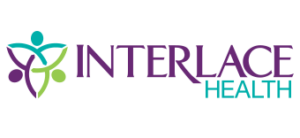NEW CUSTOMER: Nicklaus Children’s Hospital
Nicklaus Children’s Hospital Selects Interlace Health’s Electronic Informed Consent Solution
Nicklaus Children’s Hospital Selects Interlace Health’s Electronic Informed Consent Solution
City of Hope is dedicated to making a difference in the lives of people with cancer, diabetes, and other serious illnesses. The City of Hope community includes research associates, scientists, doctors, nurses, allied health professionals, graduate students, fundraising specialists, marketing professionals, volunteers, and an extensive support staff.
City of Hope leverages Interlace Health’s Patient Intake Solution. With the technology, City of Hope automates their Release of Information request workflow and their health questionnaire workflow.
The healthcare organization also has Interlace Health’s Electronic Informed Consent Solution to enhance their Epic EHR. Informed Consent by Interlace Health allows staff to gather an eSignature from the patient at bedside or during an appointment, and make the form instantly available to the care team, anywhere, anytime, on phone, tablet or laptop. There’s zero risk of this form getting lost in the shuffle. It’s there 100% at time of procedure.
[vc_row][vc_column][vc_column_text]
While advances in technology bring the power to improve interactions between patient and provider, informed consent forms often remain a lingering source of manual and paper intensive processes throughout healthcare organizations.
In fact, recent research from CynergisTek shows 76 percent of healthcare organizations surveyed, which use a common EHR platform, still print consent forms instead of using an electronic signature solution.
While consent stands for much more than a signature on a form, the effectiveness of the process in which the consent signature is obtained is extremely important. The industry is starting to take notice of the costly repercussions of sticking to the status quo.
Unfortunately, here we are in 2018 and informed consent documents remain on paper. Why is this such a big problem?
As Shahid Shah points out in his article: ‘Informed Consent: Let Go of the Status Quo’:
[nz_il type=”none” icon=”icon-checkmark” icon_color=”#07ABEF” background_color=”” ]
[/nz_il]
As the list above confirms, paper is causing big problems in the processes. Informed consent – one of the most vital forms of communication in healthcare settings, should not be overlooked by healthcare leaders.
Three recent articles from some of Health IT’s top influencers speak to the paper problem with informed consent and highlight the solution to one of healthcare’s biggest process issues: implementing an electronic informed consent solution.
Health IT Influencers Shahid Shah, Colin Hung, and John Lynn weigh in on the topic in the following articles and the value electronic informed consent brings to healthcare organizations:
 Shahid Shah, award-winning Government 2.0, Health IT, Bio IT & digital Medical Device Inventor & CTO with over 28 years of technology strategy, architecture, engineering, entrepreneurship, speaking, and writing experience, uncovers the big problem with the healthcare industry’s informed consent status quo.
Shahid Shah, award-winning Government 2.0, Health IT, Bio IT & digital Medical Device Inventor & CTO with over 28 years of technology strategy, architecture, engineering, entrepreneurship, speaking, and writing experience, uncovers the big problem with the healthcare industry’s informed consent status quo.
“Today, many healthcare institutions go without automation of consent documents – which I’m calling the status quo. Even though this document is essential, and its non-digital status quo creates many financial, clinician, and compliance burdens, it’s not high in the list of priorities for digitization or automation.” – Shahid Shah
Shahid recognizes the benefit of turning to an automated process with solutions, such as Interlace Health, which he describes as: “a universally applicable, easy to deploy, and easy to use software package with a fairly rapid ROI”.
“With eConsent software, clinicians aren’t interrupted in their workflows, patients are more satisfied, compliance becomes almost guaranteed, and procedures aren’t delayed because of lost paperwork.” – Shahid Shah
 John Lynn, Founder of the HealthcareScene.com blog network, showcased the need for an improved informed consent process in his interview with Interlace Health’s Director Clinical Solutions, Robin McKee. John points out a reason the paperless office still alludes us is paper-based consents.
John Lynn, Founder of the HealthcareScene.com blog network, showcased the need for an improved informed consent process in his interview with Interlace Health’s Director Clinical Solutions, Robin McKee. John points out a reason the paperless office still alludes us is paper-based consents.
In the interview, Robin offers a lot of great insights into consents in healthcare, the value an eConsent solution, and how Interlace Health is helping organizations successfully make the shift.
“Electronic consent forms are superior to paper in this regard. While paper consents get lost or have to be carried around in a paper chart until they are scanned into the EHR, eConsent forms are instantly archived into the EHR. This ensures the document is archived correctly every time. Plus, it is easy to access the form in pre-op, as well as confirm in the OR during timeout. We utilize a variety of methods, including HL7 and FHIR, to integrate with any EHR or document management system.” – Robin McKee, Interlace Health’s Director of Clinical Solutions.
 Highlighting the overlooked, yet quick-hit improvement area, of the informed consent process in healthcare, Colin Hung, co-founder of the #hcldr (healthcare leadership) tweetchat one of the most popular and active healthcare social media communities on Twitter, also highlighted this hot-topic issue.
Highlighting the overlooked, yet quick-hit improvement area, of the informed consent process in healthcare, Colin Hung, co-founder of the #hcldr (healthcare leadership) tweetchat one of the most popular and active healthcare social media communities on Twitter, also highlighted this hot-topic issue.
He shares The National Center for Ethics in Health Care has a special guideline that prohibits gurney consent (when a patient is asked to sign consent forms ‘on the gurney’ or after they have been sedated in preparation for a procedure) although the situation is a reality in many organizations.
….”That handbook states that “Patients must not, as part of the routine practice of obtaining informed consent, be asked to sign consent forms ‘on the gurney’ or after they have been sedated in preparation for a procedure.” This clause was meant to ensure the consent does not occur “so late in the process that the patient feels pressed or forced to consent or is deprived of a meaningful choice because he or she is in a compromised position. Sadly, gurney consents are an all too common occurrence in hospitals that use paper-based consent forms.” – Colin Hung
Colin details the easy win opportunity for improving patient experience with an eConsent solution like Interlace Health.
“Improving patient experience is a top priority. Instead of grandiose new programs, hospitals and practices would see better results by focusing on simple options that have a big impact – like an eConsent solution. Interlace Health eConsent makes it easier for organizations to treat patients with respect and gets patients involved in their care.” – Colin Hung
As these articles convey, the healthcare industry is recognizing that even though the informed consent document is essential – and its non-digital status quo poses many financial, clinical, and compliance risks – the problem often remains yet to be addressed by proven automation solutions, such as Interlace Health.
For many health systems, improving the informed consent process has quickly become integral to a proactive approach to key strategic initiatives such as patient experience, cost savings, and risk management.
As Shahid, John, and Colin’s recent articles point out, Interlace Health’s eConsent solution addresses the industry’s growing need for a more streamlined, reliable, and consistent informed consent process and provides an alternative to the error-prone, paper-based process.
Interlace Health provides robust form technology that presents clinicians with a simple, intuitive, and straight-forward process to capture consents.
By scanning the barcode on a patient’s wristband, the appropriate forms for that patient are launched for review and completion. The patient can read the form on a tablet device at the point-of-care, and conveniently sign the form electronically with their finger or stylus.
Staff can then quickly self-sign the form and date-time stamps are automatically applied. Upon the submission of the consent form, it is archived instantly into the EHR – preventing lost information and making documentation instantly visible to the care team.
Interlace Health cuts costs associated with paper, toner, printing, scanning and storage by digitizing consent processes and increasing productivity. On forms costs alone, hospitals can save thousands of dollars per year with Interlace Health’s mobile bedside consent.
In addition to a large financial savings, Interlace Health allows healthcare organizations to meet regulatory, ethical, and legal requirements while creating a more efficient and standardized consent experience for staff and patients.
See why today’s leading healthcare organizations are turning to Interlace Health to automate the critical process of informed consent.
[/vc_column_text][/vc_column][/vc_row][vc_row parallax_image=””][vc_column][/vc_column][/vc_row]
[vc_row][vc_column][vc_column_text]76% of organizations are still using paper consent forms instead of an eSignature solution. Is your organization in the majority of healthcare systems still guilty of healthcare’s most expensive, risky, and time-consuming paper chase?
Whether stemming from missing or lost forms, compliance risk, or unruly costs – FormFast’s educational webinar event on August 16 – The Impact of Informed Consent, will bring attention to the ripple effects a paper consent process can have across a healthcare organization.
“With 500 organizations recently having experienced compliance issues due to missing informed consent forms (according to The Joint Commission), it’s the right time to be having the conversation about the costly risks associated with a paper-based process. We look forward to using this webinar as a platform to share the first-hand benefits we have seen our customers experience with our mobile informed consent solution,” said FormFast’s Director of Clinical Solutions and webinar presenter, Robin McKee.
The webinar will feature a quick demo of FormFast’s mobile informed consent solution, which offers unique features to complement EHR systems and provide essential functionality to the consent process.
With FormFast’s eConsent Solution, health systems can:
Title: The Impact of Informed Consent: Compliance, Cost, Productivity, and Satisfaction
Description: Webinar focused on shedding light on the challenges around a paper-based informed consent process and the positive impact a mobile electronic consent solution can have on compliance, cost, productivity, and satisfaction across your healthcare organization.
Date and Time: Thu, Aug 16, 2018 11:00 AM – 12:00 PM CDT
View the event press release for more details and register for the event here. [/vc_column_text][/vc_column][/vc_row][vc_row][vc_column][vc_btn title=”REGISTER HERE” color=”info” size=”lg” align=”center” link=”url:https%3A%2F%2Fformfast.com%2Fregistration-impact-informed-consent%2F||target:%20_blank|”][/vc_column][/vc_row]

13421 Manchester Road
Suite 208
St. Louis, MO 63131
Sales: 314-677-3800
Technical Support: click here
We are proud to be a member of the healthcare technology industry’s leading organizations.

